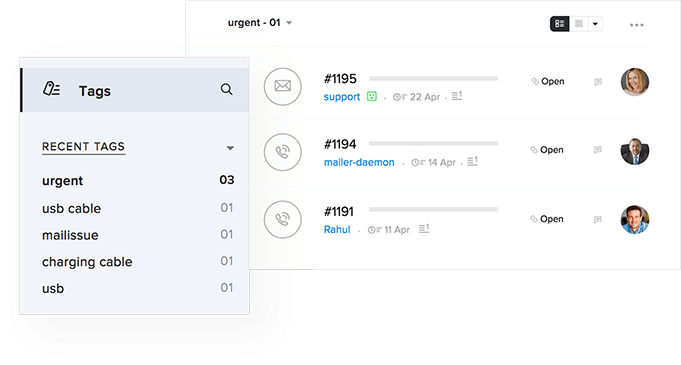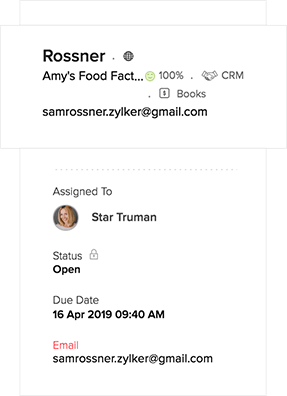- Ticket
- Agent
- Channel
- Department
- Team Feed
- Due Date
- Ticket Priority
- Ticket Status
- Ticket Tag
- Happiness Rating
- Timeline
Ticket
A ticket is a record of a customer's conversation with your support team. When they seek expert help or advice to use your products better, they get in touch with you through a ticket.

Agent
Every customer support representative is known as an agent. They respond to customers' queries and resolve their tickets.
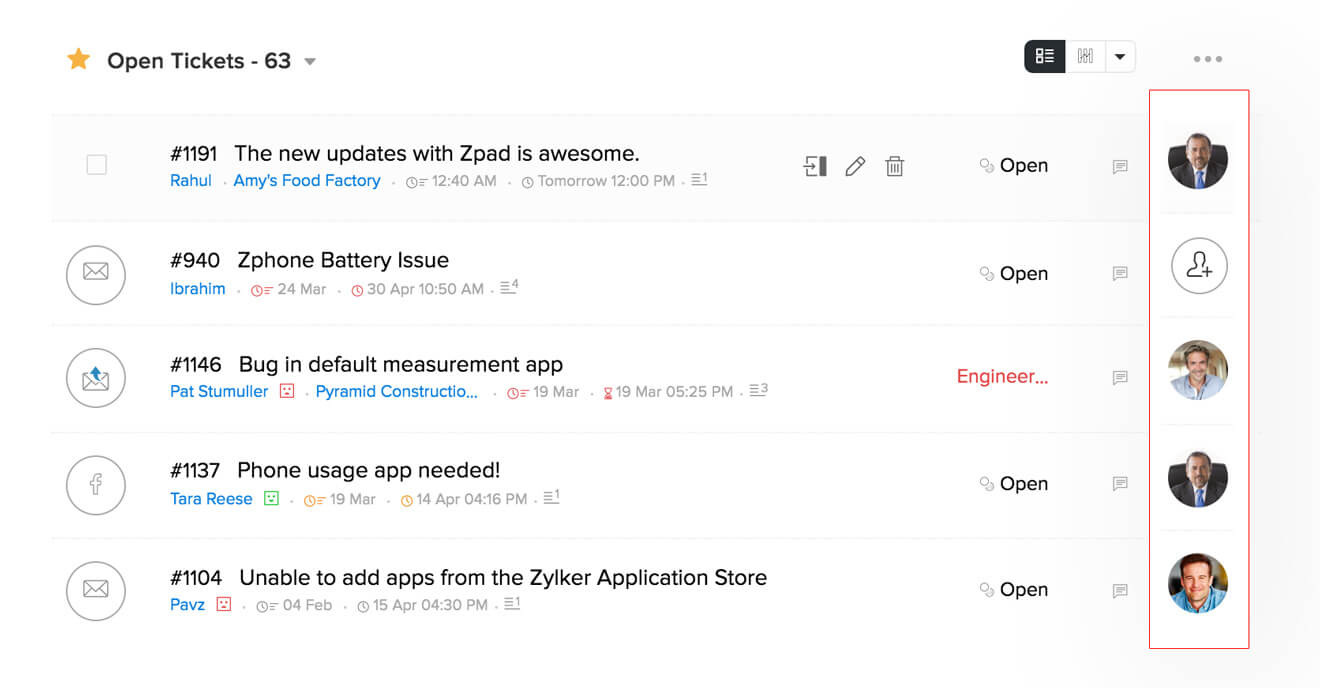
Channel
Channel is the mode by which customers raise tickets. Phone, Email, and Chat are a few examples. To increase productivity further, your agents can use the channel filter to focus on the tickets from their designated channels.

Department
Department is a group within your organization, that deals with a specific vertical. A support team typically has departments like Billing, Returns and Technical Support. Adding departments helps you organize your help desk better and allows agents to focus on tickets pertaining to their area of expertise.
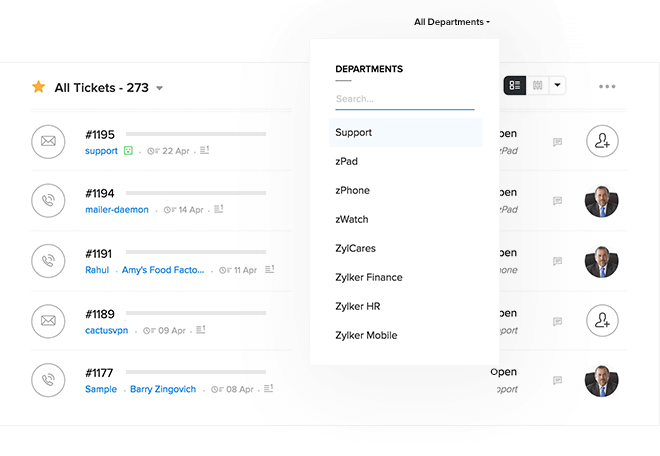
Team Feed
The key difference between a Team and a Department in Zoho Desk is that a Department has agents who hold expertise in a particular process (or) product while a Team has employees from different departments collaborating on a single project.
Team Feed is a great platform where agents from different departments in your company can collaborate on a single ticket. If your support team often works cross-functionally with other teams, they can view updates on all the tickets they collaborate on, in one screen.

Due Date
Every ticket comes with a deadline. The Due Date displays the date and time by which a ticket should be resolved. Tickets that are closed within their due date lead to better customer satisfaction than the ones that are pending past their due time.
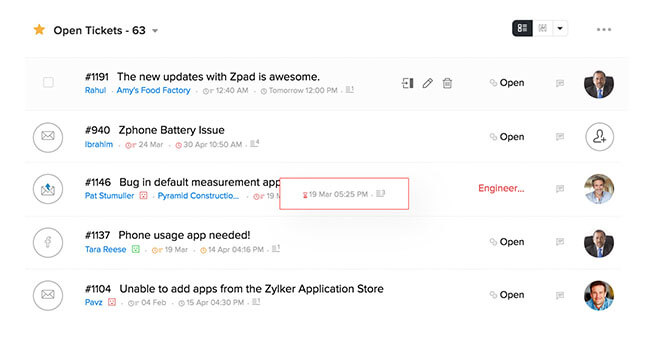
Ticket Priority
Ticket Priority defines how important a ticket is to you and how quickly you need to resolve it. Classifying tickets based on the order of their priority adds more context and helps your agents focus on the most important tickets.

Ticket Status
Ticket Status denotes the phase in which a particular ticket is in its life cycle. When a ticket is created, it begins with the "Open" status, while an agent is working on it, it changes to "In Progress" and when the issue is resolved, it goes to the "Closed" status.
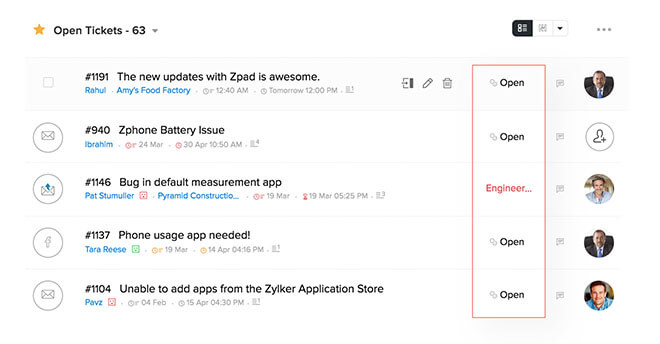
Timeline
The Timeline lists all the interactions a customer has had with you in the past. To give more context for your agents, this feature displays information such as ticket subject line, the date and time it was created, the agent who handled it, its status, and customer happiness rating.
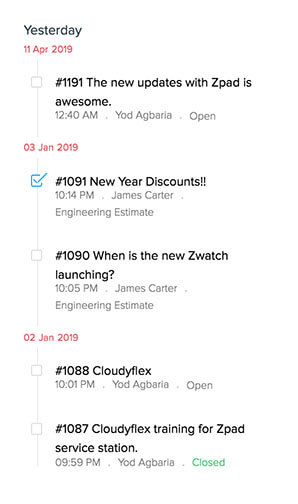
Click on an article to read it now.
Or get selected articles delivered to your email, and read them later.

